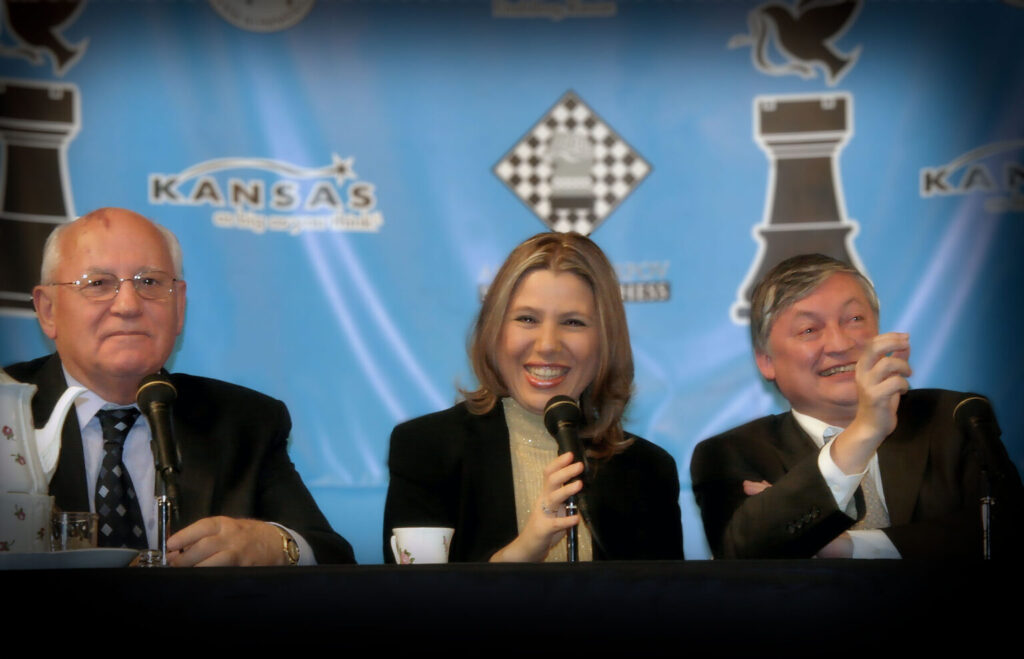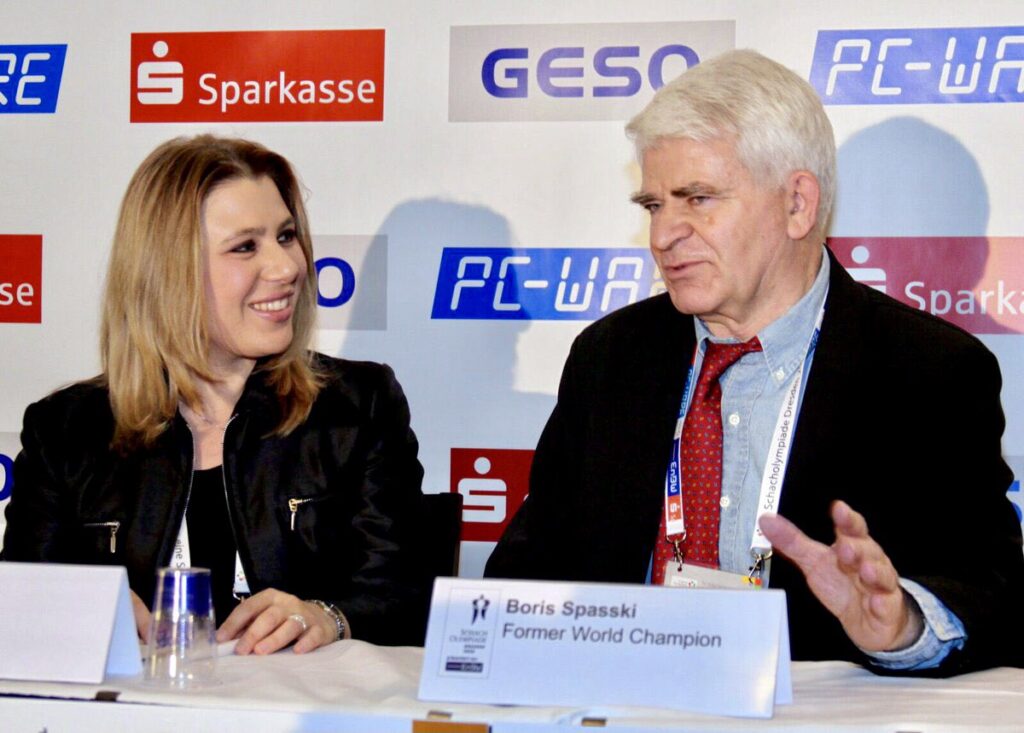Rebel Queen: The Cold War, Misogyny, and the Making of a Grandmaster. By Susan Polgar (Grand Central, March 2025)

Susan Polgar with Mikhail Gorbachev and Anatoly Karpov at the Chess for Peace event in Lindsborg, Kansas.
Susan Polgar’s Rebel Queen is a sparking memoir by the oldest of the famous Polgar sisters, the Hungarian siblings who changed the public face of chess. Arriving just in time for Women’s History Month, the story begins with an educational experiment carried out by their father, Laszlo Polgar, who thought he could stimulate genius by training children from a young age in something the child enjoyed. Susan enjoyed math and chess—but liked chess more ever since she stumbled across a chess set thinking the pieces were toys.
With his wife Klara’s help, Lazlo trained young Susan, coaching her systematically with puzzles and at the age of 4 she was off to the chess club, beating all manner of players and winning the first of many tournaments.
The book recounts the many difficulties she and her family faced—and faced down—in competing not just with other players but with the rigid ideologies of the communist system, with the Hungarian chess establishment, with antisemitism, and with sexism. The government of Soviet-dominated Hungary did not take to Susan’s being homeschooled by her parents, even though they were licensed teachers. The chess establishment did not think she should be allowed to complete in boys’ and men’s tournaments, and Women’s Grandmaster Zsuzsa Verőci, once Hungary’s top female player, tried to stymie young Polgar’s career. But by 1984 Susan became the top ranked women player in the world, at the age of just 15. The international chess association FIDE was often unhelpful, once awarding all women players except Polgar 100 bonus rating points, their twisted logic being that Susan had gained her points playing men so had already benefitted from their higher ratings.
Susan Polgar persevered, remaining ranked in the top three for the more than twenty years. In 1986, she became the first women in history to qualify for the Men’s World Chess Championship cycle, she won the World Blitz and Rapid Championship in 1992, and was the Women’s World Chess Champion from 1996 – 1999.
She was also a chess teacher and coach. When her younger sisters Sophia and Judit came along, she helped train them as well, and the trio came to dominated chess Olympiads (the Olympics of chess), beating the Russians. She recounts the bad behavior of some male players, when they lost to her, but also some whose attitudes about women in chess were changed by her success.
Polgar eventually emigrated to the United States, found her life partner, Paul Truong, and her passion to be a chess coach, first at Texas Tech University, where a new administration did what academic administrations do (cut the funding), and later at Webster University where she enjoyed a nearly ten-year run as head of the Susan Polgar Institute of Chess Excellence (or SPICE) and led her teams to seven consecutive Final Four Championships. We learn about her coaching style and techniques, and about her interests in travel, languages (she is an Esperantists), fitness, and fashion.

Polgar with Boris Spassky
It’s not just about her. Along the way, Polgar also treats readers to glimpses of some of the chess greats of the twentieth and twenty-first centuries: Mikhail Tal (who showed her “nothing but warmth and kindness” at an early age and “peppered [their blitz] games with jokes and funny observations,” Boris Spassky (who exhibited “wry, knowing humor”), Victor Korchnoi (who told her not to let the chess authorities destroy her), and Bobby Fischer (who introduced her to his Fischer Random chess and became a good friend until his antisemitism drove them apart). Also featured in anecdotes are Anatoly Karpov, Viswanathan Anand, Wesley So, and more, but there is not so-much inside chess as to get in the way of the story and Polgar does a nice job a narrating her games as dramatic sporting events, without the clutter of games scores and diagrams.
I would have liked a bit of a postscript on sisters Sofia and Judit Polar, the younger siblings who became Susan’s first pupils. Bit it turns out they have autobiographies as well, so I’ll have to check them out. In all, Rebel Queen is the engaging story of a trailblazer who changed the face of chess.

 Follow
Follow